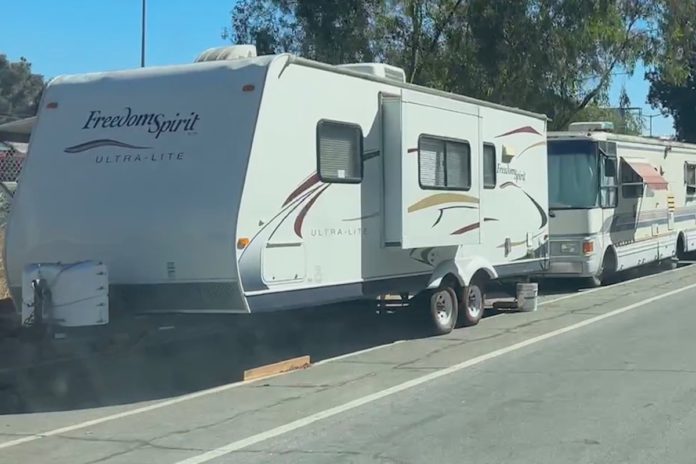On Tuesday, Fremont City Council passed an ordinance that will restrict oversized parking in residential areas. The ordinance was introduced by the council during their regular meeting on Oct. 8, and its stated goal is to build upon existing parking prohibition rules to eliminate RV encampments in the city.
“I’m concerned about safety,” said council member Raj Salwan. “The council has taken this on because it’s come from our residents who are very concerned about this issue.”
The new ordinance prohibits vehicles from being parked for more than 72 hours in a residential neighborhood. Larger vehicles like RVs have additional restrictions, and they may not be parked within 100 feet of a residential line at any time. Failure to comply can result in vehicles being ticketed, towed and impounded.
Car-dwelling is popular among Fremont’s homeless population, and a study released in May revealed that 66% of the city’s homeless live in vehicles, an increase from 2019 when that figure was 49%. To combat this, the city has implemented various programs and initiatives, including the Safe Parking Host Site Program (SPHS) that was launched in January of 2022. SPHS serves as a safe transitional space for people living in their cars, and currently there are five faith-based organizations hosting space. Unfortunately, the program currently cannot accommodate RVs, so residents continued to complain about seeing RVs in their neighborhoods.
With this new ordinance set to clear the streets of encampments, city council officials say they feel hopeful that the city will feel safer in time. But not everyone is thrilled with the new law. Resident Katherine Rubie drafted a letter to the council on Nov. 12 expressing concern over the city’s approach to RVs, calling the new ordinance a “very obvious decision to target the homeless.”
“It is appalling to know our trusted leaders would create circumstances which would lead to additional hardship, stress and potentially further losses, rather than work towards real solutions that would benefit our unhoused folks,” Rubie said.
Rubie also called out the council’s refusal to expand the Safe Parking Program, saying she believes that to be a more humanitarian solution for RV dwellers. Additionally, she pointed out that it can be time consuming to monitor where vehicles are parked throughout the city and the times they’ve spent in one area. Ultimately, she thinks this will impact the police’s response times to “more dangerous” matters.
“This is an enormous waste of manpower, energy, time and money, and will result in furthering already slow delays in responses to crimes,” Rubie said.
The ordinance goes into effect on Dec. 12.





The article says there are five host sites. While this is accurate, what is not stated is that only one site is active at any one time. Every month, the program switched to the next site on the list.
This means the program serves about 11-13 people total. It’s a great program but it’s not going to make a significant dent in Fremont’s unhoused population. We need a bigger Safe Parking program on city land that allows RVs and also families with children.
Great article! Summarizes the issue exactly: ” … SPHS serves as a safe transitional space for people living in their cars, and currently there are five faith-based organizations hosting space. Unfortunately, the program currently cannot accommodate RVs, so residents continued to complain about seeing RVs in their neighborhoods. ” So, the city approved this crackdown and decided to implement punitive monetary damages on the unhoused in RVs without providing a solution like expanding the Safe Parking Program to RVs. Leaving no options for the unhoused other than moving to another street every 3 days; IF their RV can move! If not, they’ll be towed and will loose their home!! Good Job, City of Fremont!!